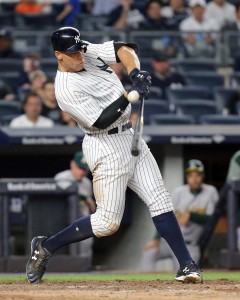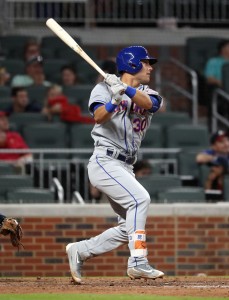We asked you yesterday to grade the Yu Darvish swap, and today we’ll do the same thing with the other major deadline-day trade: the deal that sent righty Sonny Gray from the Athletics to the Yankees.
Unlike Darvish, the Yanks’ newest hurler can be controlled for an additional two seasons via arbitration. That contract status better lined up with New York’s needs looking forward while also allowing the team to make a significant near-term addition, installing a pitcher who has thrown quite well in 2017. Indeed, by measure of FIP and xFIP, Gray has actually been a bit better than his 3.43 ERA would suggest. While long-term durability questions continue to be aired, the 27-year-old has looked strong since opening the year on the DL.
On the A’s side of the deal, too, health is more a question than is talent. Indeed, two of the three youngsters in the swap — outfielder Dustin Fowler and righty James Kaprielian — are both in the midst of rehabbing very significant injuries. While Jorge Mateo is likely viewed as the headlining piece by Oakland, the club is clearly hoping the other two players will not only return to full health, but will quickly regain their previous trajectory.
So, how do you grade this deal from the perspective of the Yankees? Was it worth giving up this much talent or does Gray stand too great a chance of returning to his injury-riddled, ineffective 2016 form? (Link for app users.)
And how do you feel the A’s did in taking this package instead of others … or rather than holding onto Gray until the fall? (Link for app users.)

